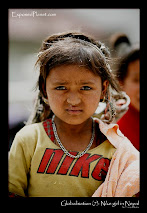Non-Governmental Organizations: Effective?
This shall be the 3rd installment to the series Globalization and Politics. Today’s essay shall cover the rise of Non-governmental Organizations, otherwise known as NGOs. NGOs form a critical part of the globalization of politics. Why so?
Globalisation, as early as the 20th century, gave rise to the importance of NGOs. At that point in time, many around the world perceived international organizations like the United Nations or the World Trade Organization as being too centered on the interests of capitalist states. The United States of America, as well as the other 4 member states which possess veto powers, only reinforced this ideal. As such, the rise of NGOs, many political scientists believe, serves to counterbalance this trend. NGOs are mostly considered apolitical in nature, with minimal to no hidden agenda. As of today, there are 40 000 over NGOs in the world. Many of which are actively involved in humanitarian crises or 3rd world developmental schemes. Examples include the International Federation of Red Cross (IFRC).
As NGOs are apolitical in nature, many tend to be receptive to the idea of having NGOs amid a conflict to arbitrate peace talks or dialogues. Like international relief agencies, NGOs focusing on conflict resolution respond to major failures on the part of the international community to deal effectively with global problems. NGOs facilitate up to date extensive fact-finding missions, engage in dialogue with a wide range of groups involved in conflicts, map out strategies for defusing conflict and galvanise action by national governments and international organisations to help stabilise tense situations. Situations in Burundi, Northern Uganda, Southern Sudan, Darfur, DRC and Rwanda provide examples of where NGOs have played a decisive role in heading off major conflicts 1. On top of NGOs are not overwhelmed with bureaucracy which is the biggest door stop to the efficacy of the United Nations. Such international agencies and governments often have institutional and political limitations that hamper their effectiveness in situations of enormous complexity and delicacy. As such, NGOs tend to responded swiftly to any crises present. After the 6 hour all clear zone after the Sichuan Earthquake, the IFRC stepped in immediately, mobilizing humanitarian workers to provide aid and rescue efforts to the region. In 1995, it was estimated that around 14 million people were refugees and some 23 million people were internally displaced. This provided fertile grounds for the rise of NGO activities in this area. In most cases, NGOs responded more effectively to these crises as the international organizations and states grapple with the issue of humanitarian intervention. Their operations have helped changed lives during and after conflicts 2.
In a nutshell, NGOs are perhaps the most sought after organizations in the world due to this efficiency in handling conflicts and humanitarian crises. It’s apolitical nature with no hidden agenda, allows it to enjoy great public support, with numerous people advocating their various causes. Hence, it’s not surprising how NGOs are able to have a steady source of funding for their humanitarian missions.

BIBLIOGRAPHY
http://cache.daylife.com/imageserve/0ana8YL377goP/610x.jpg
IFRC Picture
http://upload.wikimedia.org/wikipedia/commons/thumb/b/b7/Flag_of_the_IFRC.svg/800px-Flag_of_the_IFRC.svg.png
NGO picture
http://www.gambianow.com/news/files/ngo.jpg
1. NDUNG’U WAINAINA. 2006. Role of NGOs in Conflict Prevention Control. [online] United States of America. Global Policy Forum. Available at:
2. BEN OFOSU-APPIAH. 2008. Making NGO’s more effective and Responsive in a Globalized World. [online] United States of America. Global Policy Forum. Available at: http://www.globalpolicy.org/ngos/intro/growing/2008/0328ngoglob.htm. [Accessed: 09 August 2008] Labels: zengan

-coke-boy-tibet.jpg)
-nike-girl-nepal.jpg)




0 comments:
Post a Comment